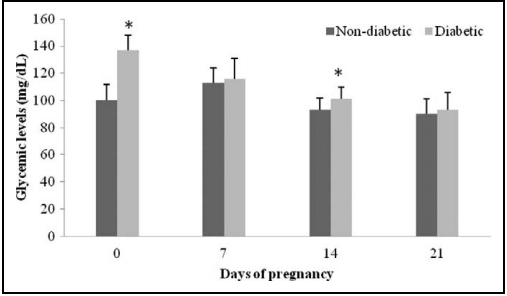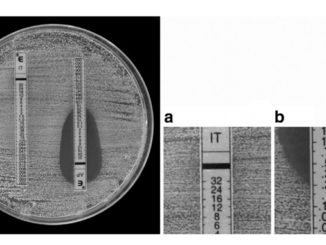
Oxidative Stress in Maternal Blood and Placenta From Mild Diabetic Rats
Abstract: The aim of the present study was at evaluating the effects of oxidative stress in blood and placenta of mild diabetic Wistar rats. At birth, Wistar rats received citrate buffer (nondiabetic group, n = 15) and another group received streptozotocin (100 mg/kg, subcutaneous) to induce mild diabetes (diabetic, n = 15). The glycemia of these pregnant adult female rats were evaluated at days 0, 7, 14, and 21 of pregnancy, and at term pregnancy, the blood and placental samples were collected for oxidative stress measurements. The mild diabetes caused glycemia superior to 120 mg/dL during pregnancy, increased superoxide dismutase, glutathione peroxidase, glutathione reductase activities, and malondialdehyde levels in the blood, and catalase activity in the placenta. Thus, mild diabetes increased activities of antioxidant substances aiming at defending against the exacerbated oxidative stress but were not enough. The placenta also answered to diabetic milieu and increased antioxidant defense, showing that even a mild hyperglycemia was enough to cause placental and maternal blood changes.
Author(s): Spada, Ana Paula Machado; Damasceno, Debora Cristina; Sinzato, Yuri Karen; et al.
Reproductive Sciences
Volume: 21 Issue: 8 Pages: 973-977 Published: 2014
DOI: https://doi.org/10.1177/1933719113519175
PDF: Oxidative Stress in Maternal Blood and Placenta From Mild Diabetic Rats




